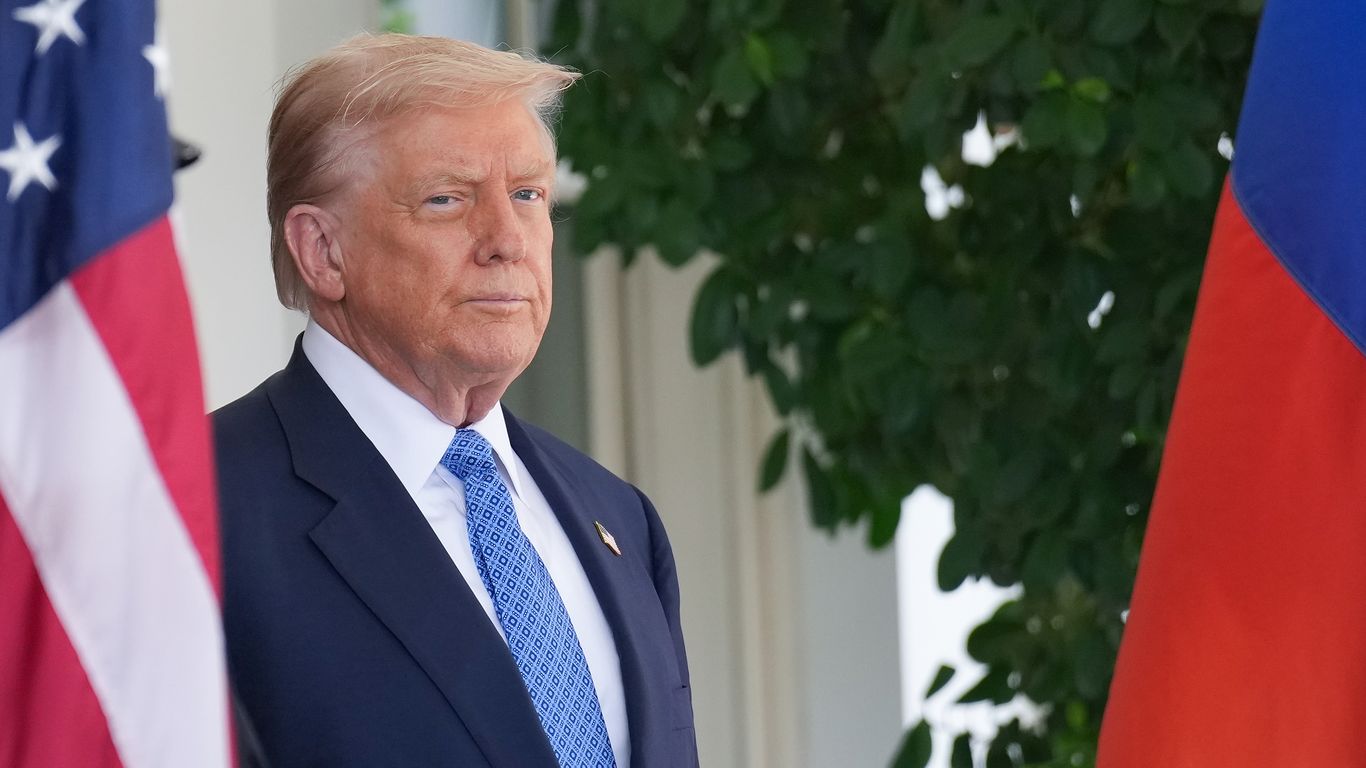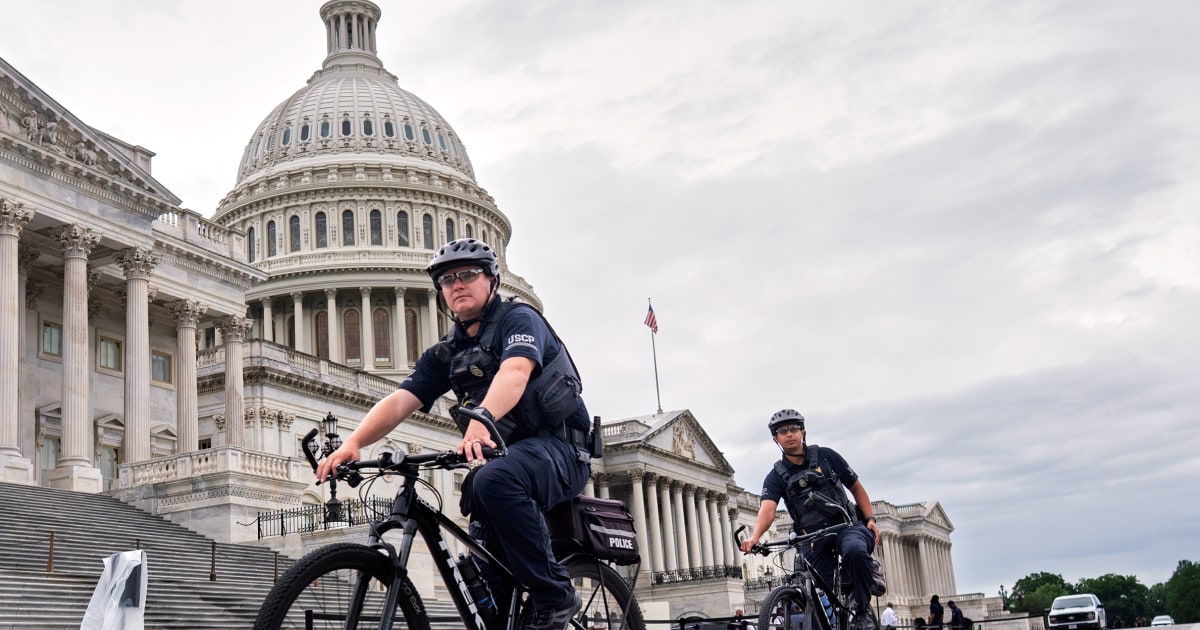FBI Searches Home of Former Trump Adviser John Bolton

Introduction
The FBI recently carried out a search of the home of former Trump adviser John Bolton, sparking speculation and controversy. This search was authorized by a court, though the FBI has not provided any further details at this time. Bolton, a frequent critic of the president, has been a controversial figure in the current political climate. This latest development adds to the ongoing drama surrounding the Trump administration.
Key Details
The search of Bolton's home is just the latest in a series of events that have made headlines in recent years. From impeachment hearings to ongoing investigations, the Trump administration has been surrounded by controversy and scrutiny. Bolton, who served as National Security Advisor for a brief period, has been a vocal critic of the president's foreign policies and decision-making. The FBI's search of his home is sure to only add fuel to the fire and raise questions about the current state of American politics.
Impact
This latest search of a former Trump adviser's home is just one example of the deep divide and tension within the US political landscape. With ongoing investigations and a constantly evolving political climate, it seems that the drama and controversy will continue to make headlines for the foreseeable future. As an expert SEO blog writer, it is important to stay informed and provide accurate and engaging content to keep readers up to date on the latest developments. Stay tuned for more updates as this story unfolds.
About the People Mentioned
John Bolton
John Bolton is an American attorney and government official known for his long career in Republican administrations and a consistently hardline approach to U.S. foreign policy. Born on November 20, 1948, in Baltimore, Maryland, he graduated summa cum laude from Yale University (B.A.) and later earned his J.D. from Yale Law School[2]. Bolton began his public service in the early 1980s under President Ronald Reagan, holding positions at the U.S. Agency for International Development and as Assistant Attorney General (1985–1989)[1]. He served as Assistant Secretary of State for International Organization Affairs under President George H.W. Bush (1989–1993)[1][2]. During the George W. Bush administration, Bolton was appointed Under Secretary of State for Arms Control and International Security (2001–2005), where he supported U.S. withdrawal from the Anti-Ballistic Missile Treaty and opposed the International Criminal Court[1]. His nomination as U.S. Ambassador to the United Nations was controversial; facing bipartisan Senate opposition, he was installed via a recess appointment in August 2005, serving until December 2006[1][3]. At the UN, Bolton was known for his blunt, confrontational style, famously remarking that the Secretariat building “has 38 stories. If it lost 10 stories today, it wouldn’t make a bit of difference”[3]. His tenure was marked by tensions with UN officials and allies, and he achieved few major diplomatic breakthroughs[3]. Bolton returned to private life as a commentator, notably for Fox News, where he advocated aggressive stances on Iran and North Korea[3]. In April 2018, President Donald Trump appointed him National Security Advisor, a role he held until September 2019[1][5]. During this period, Bolton was a vocal advocate for a tough line on Iran, Venezuela, and North Korea, but his tenure ended abruptly amid reported policy disagreements with the president[1]. Since leaving government, Bolton has remained a prominent conservative voice, authoring books and frequently commenting on foreign policy. His memoirs, including “The Room Where It Happened,” have been notable for their critical insider accounts of the Trump administration. Bolton continues to influence foreign policy debates through media appearances and writings, maintaining relevance as a staunch advocate for assertive American global leadership[6].
About the Organizations Mentioned
FBI
The Federal Bureau of Investigation (FBI) is a premier law enforcement agency in the United States, renowned for its role in protecting the nation from domestic and international threats. Founded on July 26, 1908, as the Bureau of Investigation, it was initially tasked with addressing land fraud and corporate malfeasance under President Theodore Roosevelt[1][2]. Over time, its mandate expanded significantly, particularly with the passage of the Mann Act in 1910, which allowed federal jurisdiction over certain moral offenses[1][4]. ### History and Evolution The FBI underwent significant transformation under J. Edgar Hoover, who became its director in 1924. Hoover implemented strict hiring standards and enhanced operational capabilities, transforming the agency into a robust investigative force[1][4]. The FBI's name was officially changed to the Federal Bureau of Investigation in 1935[5][6]. Throughout its history, the FBI has faced challenges, including concerns about potential abuses of power, but it has consistently demonstrated its value in national security and law enforcement[3][4]. ### Key Achievements The FBI has been instrumental in combating various crimes, including white-collar offenses, civil rights violations, and national security threats. Notable achievements include its role in enforcing the Espionage Act during World War I and its investigations into organized crime throughout the 20th century[2][4]. ### Current Status Today, the FBI is a sophisticated agency with over 37,100 employees, including special agents and professionals in various fields such as intelligence analysis and cybersecurity[5]. It operates in 55 field offices across the U.S. and has an international presence in 81 nations[5]. The FBI continues to evolve, addressing emerging threats like cybercrime and terrorism while maintaining its commitment to justice and integrity. ### Notable Aspects The FBI is known for its rigorous training programs at the FBI Academy in Quantico, Virginia, and its advanced forensic capabilities at the FBI Laboratory. Its work in business and technology includes
Trump administration
The **Trump administration** refers to the executive branch of the U.S. federal government during Donald J. Trump’s presidency, initially from January 20, 2017, to January 20, 2021, and resuming with his second term starting in 2025. It was characterized by a mix of aggressive domestic policies, significant judicial appointments, and a distinct foreign policy approach that emphasized "America First" principles[4][8]. The administration’s key activities included **tax reform**, notably passing the $3.2 trillion Tax Cuts and Jobs Act, which represented the largest overhaul of the U.S. tax code in decades[5]. Trump also renegotiated trade agreements with major economies including Mexico, Canada, China, Japan, and South Korea, prioritizing bilateral deals over multilateral ones such as the Trans-Pacific Partnership (TPP), which the administration withdrew from early on[1][2]. The administration sought to protect American jobs by restricting cheap foreign labor and influencing agencies like the Tennessee Valley Authority to retain American workers[5]. On the judicial front, the Trump administration appointed over 200 federal judges, including three Supreme Court justices—Neil Gorsuch, Brett Kavanaugh, and Amy Coney Barrett—shaping the judiciary for years to come[4]. These appointments were among the most significant achievements, influencing U.S. law on multiple fronts. In foreign policy, the administration pursued a controversial agenda: it imposed travel bans on several predominantly Muslim countries, withdrew U.S. troops from northern Syria, and supported Saudi Arabia militarily despite congressional opposition related to the Yemen conflict[1][3]. It also fostered new international technology alliances, such as securing commitments from allies to exclude Chinese telecom giant Huawei from 5G infrastructure and signing AI cooperation agreements with the UK[5]. The Trump administration faced substantial political turmoil, including two impeachments by the House of Representatives—first in 2019 over Ukraine dealings, and again in 2021 following the January













